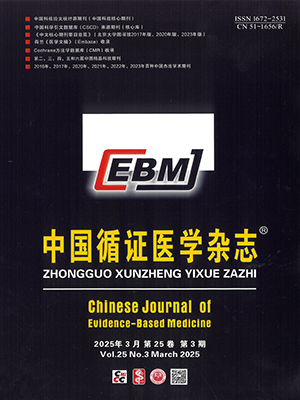| 1. |
Wang W, Jiang B, Sun H, et al. Prevalence, incidence, and mortality of stroke in China: results from a nationwide population-based survey of 480 687 adults. Circulation, 2017, 135(8): 759-771.
|
| 2. |
Wilhelmsen L, Svärdsudd K, Korsan-Bengtsen K, et al. Fibrinogen as a risk factor for stroke and myocardial infarction. N Engl J Med, 1984, 311(8): 501-505.
|
| 3. |
del Zoppo GJ, Levy DE, Wasiewski WW, et al. Hyperfibrinogenemia and functional outcome from acute ischemic stroke. Stroke, 2009, 40(5): 1687-1691.
|
| 4. |
贾亮, 王玉, 李国锋, 等. 蚓激酶胶囊治疗脑梗死临床观察. 河北医药, 2015, (2): 246-247.
|
| 5. |
张建斌, 鹿梁燕, 王素芳, 等. 蚓激酶胶囊对急性脑梗死患者脑循环动力学影响的临床研究. 中国医药, 2010, 5(8): 712-714.
|
| 6. |
熊高华, 聂本刚, 喻明. 蚓激酶治疗急性脑梗死的疗效观察. 中国医药导刊, 2011, 13(9): 1497-1498.
|
| 7. |
贾震雷, 连妙芬. 百奥蚓激酶治疗急性脑梗死 99 例的临床分析. 中国药业, 2012, 21(12): 17.
|
| 8. |
金莲, 陶俐. 蚓激酶治疗脑梗死的临床效果观察. 中国生化药物杂志, 2016, (2): 160-161, 164.
|
| 9. |
董强, 乔健, 史郎峰, 等. 蚓激酶胶囊治疗脑梗死患者的疗效和安全性. 中国新药杂志, 2004, 13(3): 257-260.
|
| 10. |
中华神经科学会, 中华神经外科学会. 各类脑血管疾病诊断要点. 中华神经科杂志, 1996, 29(6): 379-380.
|
| 11. |
Hatano S. Experience from a multicentre stroke register: a preliminary report. Bull World Health Organ, 1976, 54(5): 541-553.
|
| 12. |
Higgins JPT, Green S. Cochrane Handbook for Systematic Reviews of Interventions (Version 5.1.0). The Cochrane Collaboration, 2011. Available at: http://www.cochrane-handbook.org.
|
| 13. |
李克波, 张长青. 蚓激酶治疗急性脑梗死 58 例疗效观察. 中国基层医药, 2007, 14(3): 481-482.
|
| 14. |
耿瑞慧, 刘辉, 孙凤银. 蚓激酶治疗脑梗死 35 例. 武警医学, 2004, 15(5): 364-365.
|
| 15. |
周秀萍, 陈彩云, 耿丽君, 等. 蚓激酶治疗脑梗死临床观察. 中国煤炭工业医学杂志, 2004, 7(11): 1045.
|
| 16. |
黄占东, 李宗文, 张文须. 蚓激酶治疗脑梗死. 中国新药与临床杂志, 2000, 19(6): 453-455.
|
| 17. |
王晓星, 王婌娴, 顾春华. 蚓激酶治疗急性脑梗死疗效分析. 中国实用神经疾病杂志, 2011, 14(9): 47-48.
|
| 18. |
窦丽辉. 蚓激酶胶囊治疗脑梗死患者的疗效和安全性. 大家健康(中旬版), 2016, 10(4): 89-90.
|
| 19. |
张亚平, 王建茹. 蚓激酶治疗急性脑梗死 50 例临床分析. 中国实用神经疾病杂志, 2010, 13(19): 28-29.
|
| 20. |
黎文艺, 李和, 汪昌树, 等. 蚓激酶治疗脑梗死 27 例临床观察. 新医学, 2003, 34(z1): 63-64.
|
| 21. |
黄流清, 贺斌, 庄建华, 等. 蚓激酶胶囊治疗脑梗死病人的临床观察. 卒中与神经疾病, 2004, 11(2): 114-115.
|
| 22. |
刘剑勇, 李伟. 蚓激酶胶囊治疗急性脑梗死临床观察. 首都医药, 2004, 11(12): 38-39.
|
| 23. |
吴松笛, 丁桃英, 王芳. 蚓激酶治疗急性脑梗死的临床观察. 陕西医学杂志, 2001, 30(9): 551-553.
|
| 24. |
徐军, 刘红, 苗素梅. 蚓激酶胶囊治疗急性缺血性脑梗死临床分析. 社区医学杂志, 2005, 3(4): 4-5.
|
| 25. |
刘晶. 蚓激酶胶囊治疗急性脑梗死的疗效观察. 首都医药, 2011, 18(8): 38-39.
|
| 26. |
李海鹏, 杨期明, 谢笛, 黄仁彬. 蚓激酶胶囊治疗脑梗死的疗效观察. 首都医药, 2010, 17(10): 50-51.
|
| 27. |
雷冬兰. 蚓激酶治疗老年急性缺血性脑卒中的疗效观察. 中国现代医生, 2008, 46(35): 141.
|
| 28. |
汤秀敏, 楚晓辉, 张明宇. 百奥蚓激酶胶囊治疗急性缺血性脑梗死疗效观察. 中国实用医刊, 2008, 35(19): 78.
|
| 29. |
朱兴进, 谈介凡, 朱扬, 等. 蚓激酶胶囊治疗急性脑梗死的临床研究. 首都医药, 2009, 16(4): 46-47.
|
| 30. |
钱江, 杨泉. 蚓激酶治疗急性脑梗死的临床疗效观察. 医药前沿, 2016, 6(30): 154-155.
|
| 31. |
徐春燕, 吴志忠, 詹细平. 蚓激酶治疗脑梗死的临床疗效观察. 医学信息, 2014, (33): 198-198, 199.
|
| 32. |
陈登青. 百奥蚓激酶治疗急性脑梗死的临床观察. 首都医药, 2009, 16(18): 48-49.
|
| 33. |
童建菁, 陈尔真, 喻中城, 等. 蚓激酶治疗急性脑梗死的疗效观察. 岭南急诊医学杂志, 2004, 9(3): 174-175.
|
| 34. |
罗利俊, 陈国华, 笱玉兰, 等. 蚓激酶治疗急性脑梗死的临床疗效观察. 首都医药, 2011, 18(14): 28-29.
|
| 35. |
徐红兵, 王婌娴, 花红林. 蚓激酶治疗急性脑梗死的疗效观察. 工企医刊, 2011, 24(5): 11-13.
|
| 36. |
陈卡玲, 骆磊, 金普放. 蚓激酶治疗糖尿病并发急性脑梗死疗效观察. 浙江中西医结合杂志, 2011, 21(1): 26-27.
|
| 37. |
丁朝兵, 陈东, 智睿, 等. 蚓激酶治疗急性脑梗死患者临床研究. 首都医药, 2007, 14(10): 40-41.
|
| 38. |
刘仁君, 高凤琴, 张世璇, 等. 百奥蚓激酶与常规药物治疗脑梗死临床疗效观察. 齐齐哈尔医学院学报, 2002, 23(2): 139.
|
| 39. |
朱建勋, 台耀军. 蚓激酶与常规药物治疗脑梗死临床疗效观察. 首都医药, 2004, 11(22): 47-48.
|
| 40. |
中华医学会神经病学分会, 中华医学会神经病学分会脑血管病学组. 中国急性缺血性脑卒中诊治指南2014. 中华神经科杂志, 2015, 48(4): 246-257.
|
| 41. |
Tang Y, Liang D, Jiang T, et al. Crystal structure of earthworm fibrinolytic enzyme component a: revealing the structural determinants of its dual fibrinolytic activity. J Mol Biol, 2002, 321(1): 57-68.
|
| 42. |
唐宁. 蚓激酶治疗急性脑梗死疗效的 Meta 分析. 南京晓庄学院学报, 2014, 6(6): 47-49.
|
| 43. |
Cao YJ, Zhang X, Wang WH, et al. Oral fibrinogen-depleting agent lumbrokinase for secondary ischemic stroke prevention: results from a multicenter, randomized, parallel-group and controlled clinical trial. Chin Med J (Engl), 2013, 126(21): 4060-4065.
|




